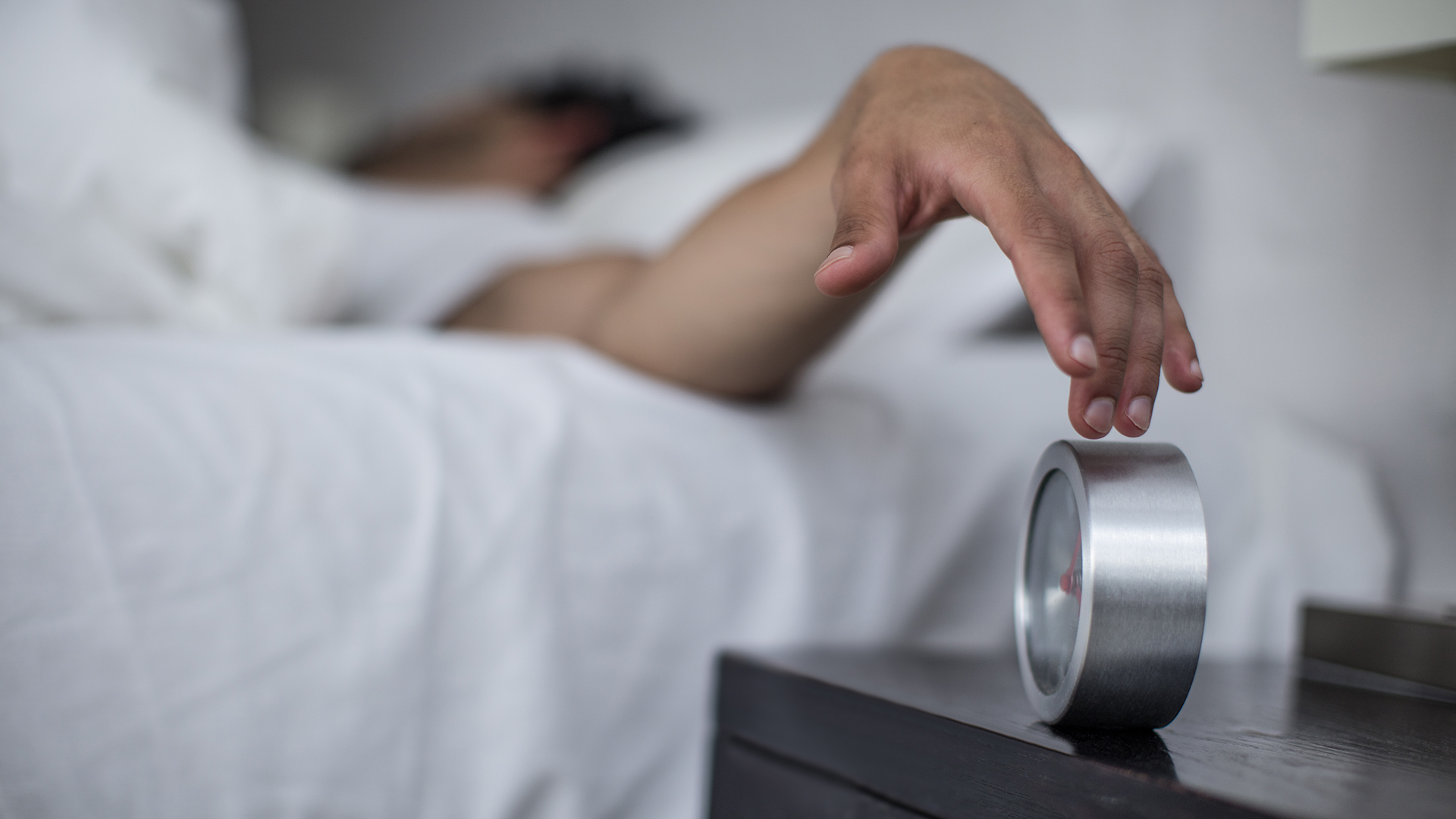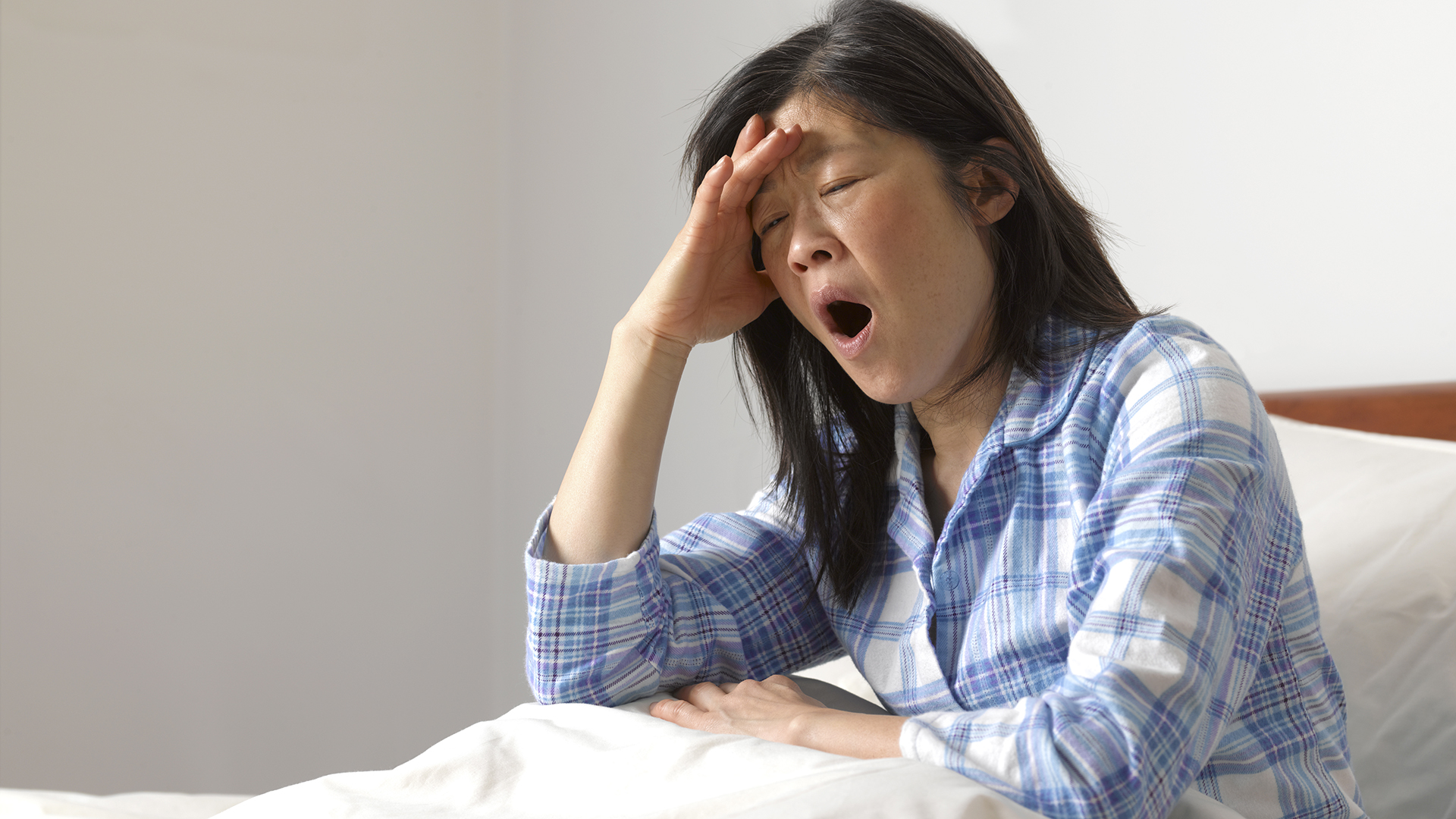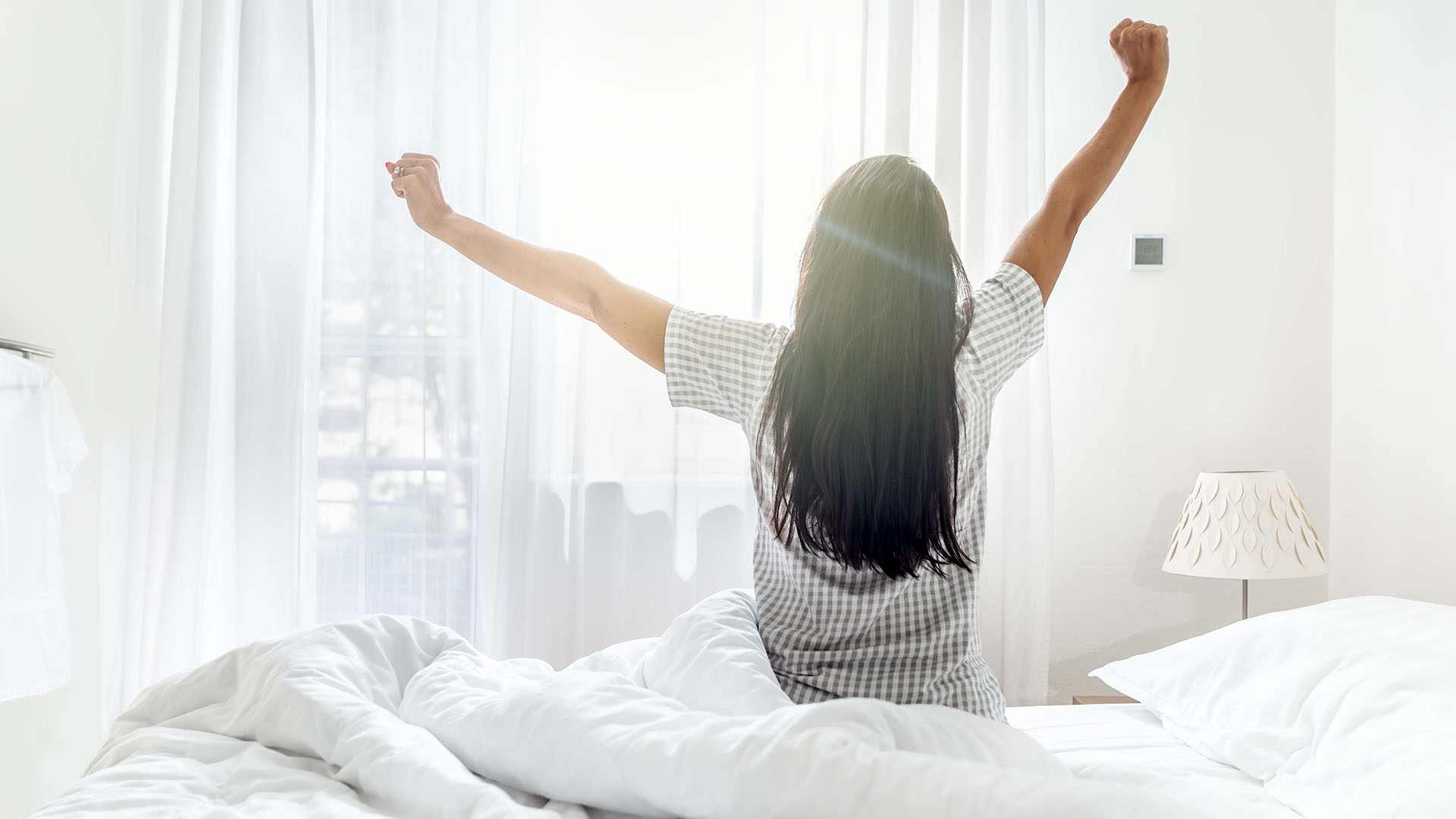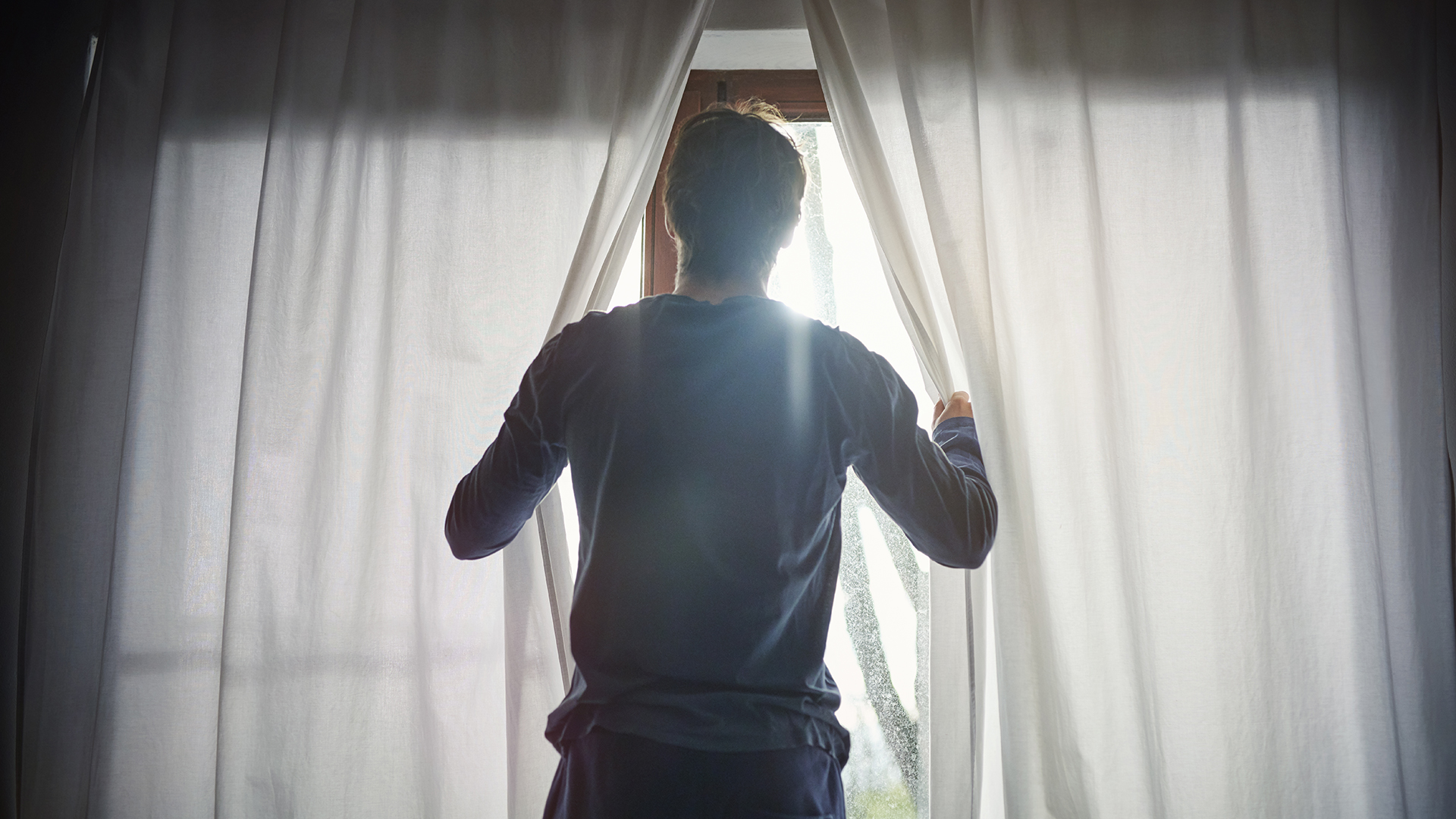Hitting snooze can ruin your morning energy levels – here's how to kick the habit
Those few extra minutes in bed might actually make you feel even sleepier

You know that feeling when you wake up and it’s pitch black and you don’t know what’s going on but there’s an alarming ringing and the vague feeling you should be doing something? This is what your body feels when you hit snooze.
“Reaching for the snooze button can confuse your circadian rhythm, leaving your body uncertain about when it is time to wake and go to sleep,” says Dr Katherine Hall, sleep psychologist at Happy Beds. Instead of waking up, as your body was expecting, it’s now being told to go back to sleep, only to then be shocked awake once again.

Still, what’s the harm in a few extra minutes of sleep? Quite a lot, according to Dr Hall; at least, if you want to develop a healthy bedtime routine. “[Pressing snooze] can lead to chronic tiredness, trouble sleeping, and that groggy feeling, known as sleep inertia,” says Dr Hall.
The siren call of the snooze button is hard to resist (especially when you have one of our best mattresses to snuggle up in). But as just a few minutes of dozing can impact your entire day, we recommend saying no to snooze. Here’s how you can go about it:
5 tips to stop hitting the snooze buton
Stopping the snooze isn't the easiest resolution, but these tips can help you make it through those early mornings without going back to bed. (If you're considering giving up the snooze, check out the 10-3-2-1-0 sleep method, which helps you structure your day and evening for better sleep.)
1. Try going snooze free for a few days
If cutting out the snooze button altogether leaves you in a panic, try introducing a few snooze-free mornings. On these days, turn the snooze function off, to remove the temptation entirely. Then use our tips below, to help you keep your no-snooze promise.
2. Let light into your room
Waking up in the dark is difficult, as Dr Hall explains. "The absence of natural light in the morning disrupts our circadian rhythms, as our bodies typically respond to waking with daylight.”
Get daily insight, inspiration and deals in your inbox
Sign up for breaking news, reviews, opinion, top tech deals, and more.

Unfortunately, natural sources of light aren’t always abundant during early mornings. If the sky is still dark outside, switch on your ceiling light (or try one of or best wake-up lights, for a natural and pleasant waking experience).
3. Switch to a soothing alarm
A shrieking alarm sound is one of the worst ways to wake up. Not only will it get your heart racing, it can also disturb your natural circadian rhythm. Opt for a soothing tone, to gently ease you out of sleep, instead. We’ve rounded up the best iPhone alarms to wake up to, to help you out.
4. Get out of bed (at least a little bit)
Avoid the temptation to curl up and go back to sleep by getting out of bed as soon as you wake up. If that sounds too difficult (who jumps out of bed in January?) go for a softer approach: stick your foot out from beneath the covers. The sudden change in temperature can help kickstart your morning.

5. Be honest about when you wake up
Do you spend your mornings hitting the snooze button over and over, adding nine, 18, 27 minutes to your sleep? After several snoozes in a row, your brain and body won’t know what’s going on, and you’re likely to spend the day feeling groggy and tired.
Instead of repeatedly pressing snooze, learn your sleep chronotype, and be honest with yourself about when you’re actually likely to get out of bed. Take a kinder approach – instead of multiple snoozes, try a slightly earlier waking time, and give yourself a reason to get out of bed. (Like a delicious and ready-made breakfast).

Dr Katherine Hall is a Sleep Psychologist who specializes in treating insomnia. She holds degrees with specializations in Acceptance and Commitment Therapy and Cognitive Behavioral Therapy for Insomnia. With over 13 years of clinical experience working in the public and private sectors, Katherine is dedicated to improving sleep health.

Ruth is TechRadar’s Sleep Writer. She’s here to help you find the perfect sleep setup for your budget and personal preferences. As well as keeping a keen eye on everything that’s going on in the world of mattresses, she regularly speaks to experts to help you learn how to improve your sleep habits, whether that’s by debunking sleep myths or explaining the science behind it all. Prior to joining the TechRadar team, she wrote features and product guides for new parents hoping to get a decent night's sleep, as well as writing for a variety of online spaces.